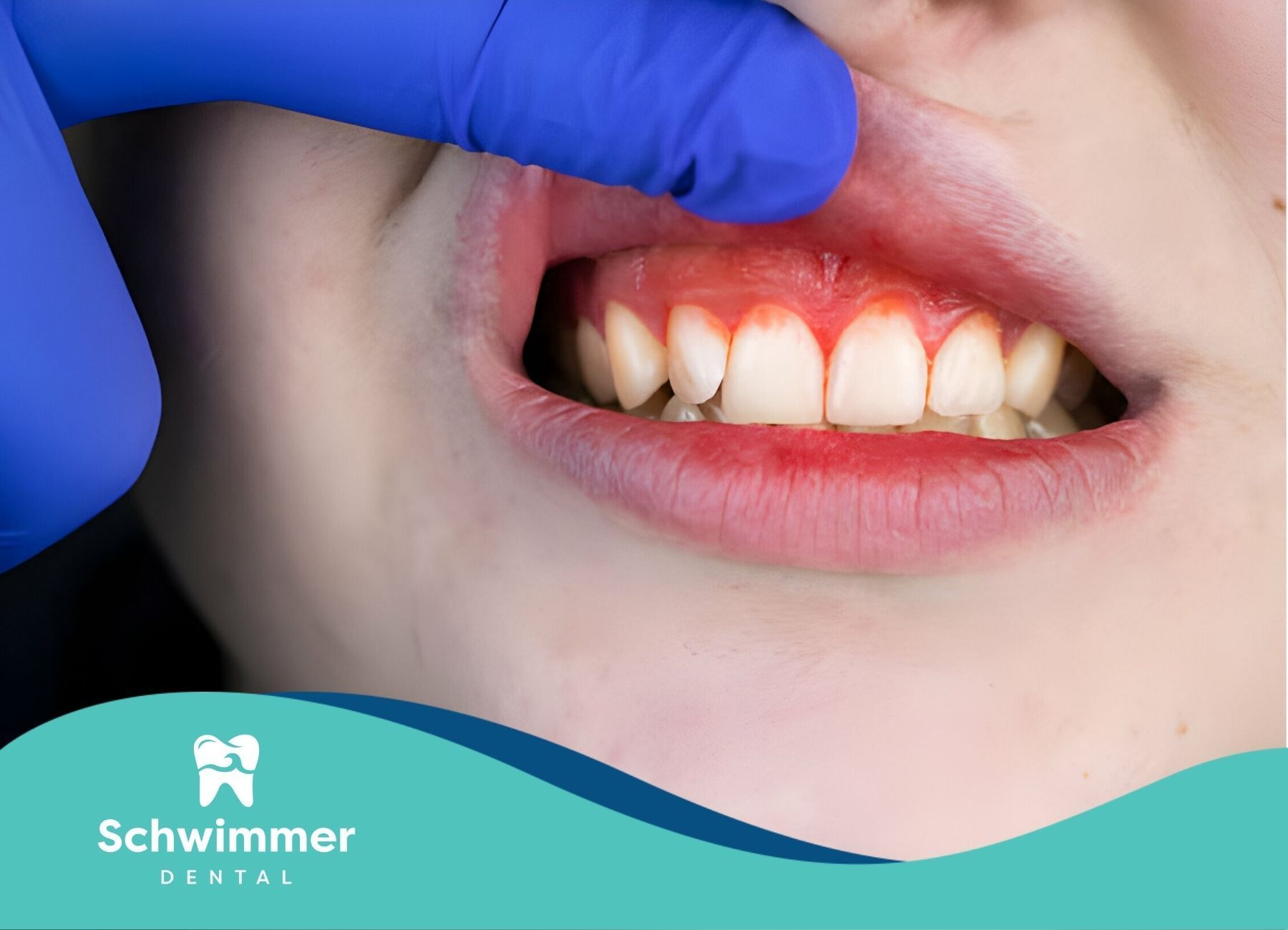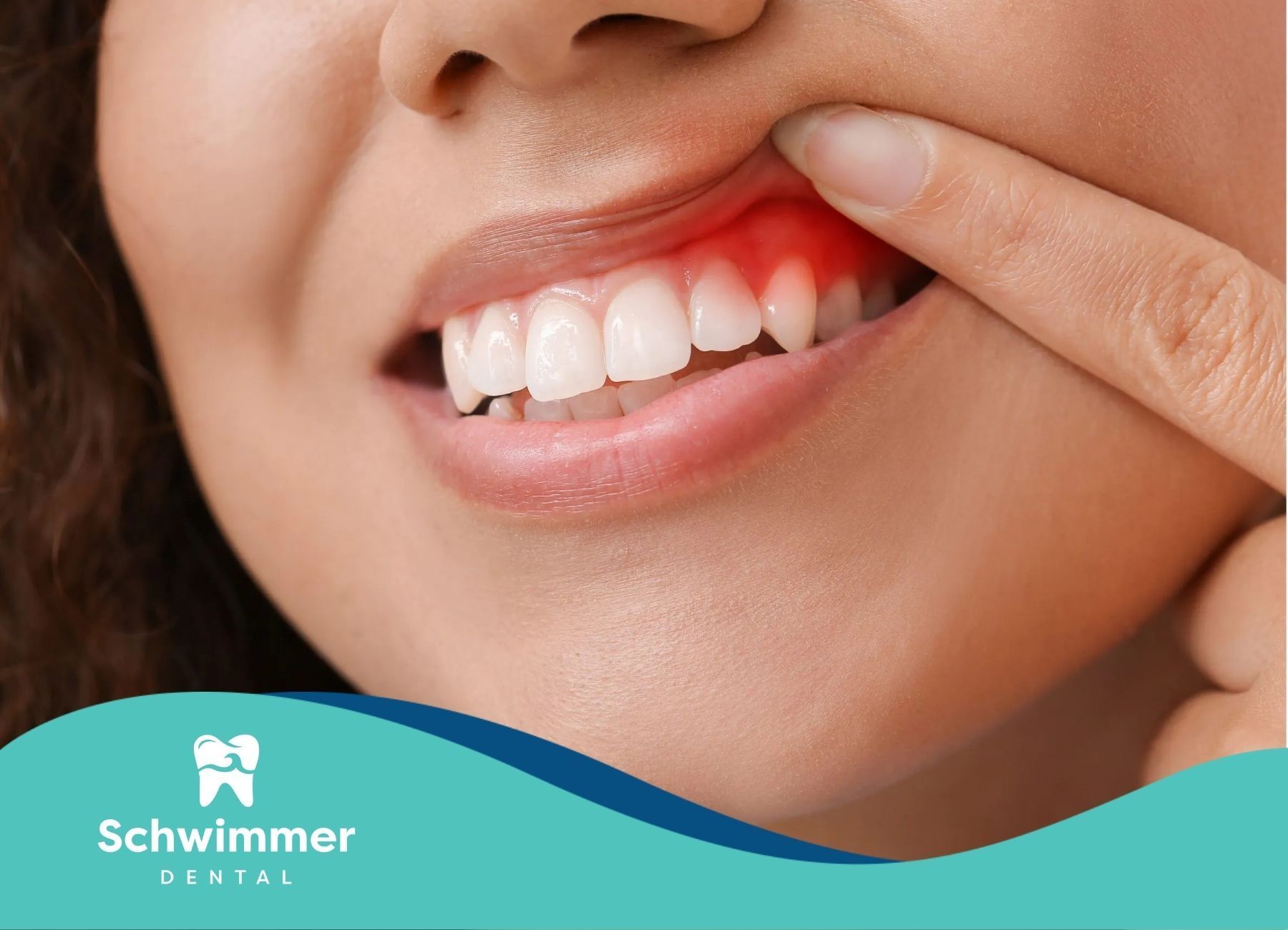Have an appointment? Complete the Intake Form
The Truth Behind Common Dental Myths: Myths vs. Facts
Dental health is surrounded by myths and misconceptions that can mislead people into unhealthy habits. From the belief that brushing harder cleans better to the idea that cavities are only caused by sugar, many myths circulate within the realm of oral hygiene. It’s important to separate fact from fiction in order to maintain optimal oral health and make informed decisions when it comes to taking care of your smile.
In this article, we will address some of the most common dental myths, debunk them, and provide accurate information to guide your
dental care practices. Whether you’re an experienced dental patient or someone looking to improve their oral health, understanding the truth behind these myths is crucial for maintaining healthy teeth and gums.
1. Sugar is the Sole Cause of Cavities
Myth: Consuming sugar is the only cause of cavities.
Fact: While sugar plays a significant role in the development of cavities, it is not the only culprit. Cavities form when bacteria in the mouth break down carbohydrates (including sugars) to produce acid, which erodes tooth enamel.
These bacteria can thrive on any type of carbohydrate, including starchy foods like bread and pasta. Regular brushing and flossing are essential in preventing cavities, regardless of your sugar intake.
2. Brushing Harder Cleans Teeth Better
Myth: Brushing your teeth harder will make them cleaner.
Fact: Brushing your teeth too hard can actually cause damage to your enamel and gums. Over-aggressive brushing can lead to gum recession, which exposes sensitive tooth roots, and it can wear down your enamel over time.
To clean your teeth effectively, use a soft-bristled toothbrush and brush gently with a circular motion. It’s the technique, not the force, that ensures a clean mouth.
3. Chewing Gum is Just as Good as Brushing Your Teeth
Myth: Chewing gum can replace brushing your teeth.
Fact: While sugar-free gum can help reduce plaque and increase saliva production, it’s not a substitute for brushing and flossing. Brushing removes plaque and food particles from all surfaces of your teeth, while gum can only clean your teeth in a limited way.
Make sure to brush your teeth at least twice a day and floss once to maintain optimal oral hygiene.
4. Whitening Toothpaste Can Whiten Your Teeth Significantly
Myth: Whitening toothpaste will significantly whiten your teeth.
Fact: Whitening toothpaste can help remove surface stains from your teeth, but it does not change the natural color of your teeth. The whitening effect is limited to cleaning away minor surface discoloration.
For more noticeable whitening, professional treatments such as teeth whitening at your dentist’s office or with professional-grade products are more effective.
5. You Should Brush Your Teeth Immediately After Eating
Myth: Brushing your teeth immediately after eating is the best way to clean them.
Fact: While it may seem like brushing right after eating is a good idea, it can actually harm your enamel, especially after consuming acidic foods like citrus or soda.
The acids in food can temporarily soften your enamel, and brushing immediately afterward can wear it away. It’s better to wait at least 30 minutes after eating before brushing your teeth to allow your enamel to harden again.
6. Baby Teeth are Not Important
Myth: Baby teeth don’t matter because they eventually fall out.
Fact: Baby teeth play an essential role in a child’s development, even though they eventually fall out. They help guide the permanent teeth into place, assist in proper speech development, and contribute to overall oral health.
It’s important to care for baby teeth to avoid early cavities or infections that can impact the development of adult teeth.
7. Dental Visits Are Only Necessary When You Have a Problem
Myth: You should only visit the dentist when you have a dental problem.
Fact: Regular dental check-ups are critical for preventive care. Even if you feel fine and have no visible issues, routine visits allow your dentist to monitor your oral health, clean your teeth, and catch potential problems early on.
Regular visits can help prevent issues like cavities, gum disease, and tooth decay from becoming more serious.
8. You Don’t Need to Floss If You Brush Regularly
Myth: Brushing your teeth is enough; you don’t need to floss.
Fact: Flossing is essential for maintaining good oral hygiene. Brushing removes plaque from the surface of your teeth, but it can’t reach between your teeth where food particles and plaque can build up. Flossing helps clean these hard-to-reach areas, preventing gum disease and cavities.
Make it a habit to floss once a day to keep your gums and teeth healthy.
9. Teeth Whitening Weakens Your Teeth
Myth: Teeth whitening treatments weaken your teeth.
Fact: Professional teeth whitening treatments are safe and do not weaken your teeth when done correctly. The active ingredients in whitening treatments target stains on the tooth’s surface and deep inside the enamel without damaging the tooth structure.
However, overuse or at-home whitening treatments without professional guidance can cause temporary tooth sensitivity. Always consult your dentist for safe whitening options.
10. Dental X-rays are Dangerous
Myth: Dental X-rays are dangerous and should be avoided.
Fact: Dental X-rays are a safe and valuable diagnostic tool in modern dentistry. The radiation from dental X-rays is minimal and the procedure is highly controlled to ensure patient safety.
Dental X-rays help your dentist detect issues like cavities, bone loss, and infections that are not visible to the naked eye. They are an essential part of preventive care.
11. Wisdom Teeth Always Need to Be Removed
Myth: Wisdom teeth always need to be removed.
Fact: While wisdom teeth often need removal due to issues like impaction or misalignment, not all wisdom teeth need to be extracted. If wisdom teeth emerge properly aligned and don’t cause any problems, they may remain in place without issue.
It’s important to have your dentist evaluate your wisdom teeth regularly to determine whether removal is necessary.
12. Braces are Only for Teenagers
Myth: Braces are only for teenagers and young adults.
Fact: Braces can be effective for patients of all ages. Many adults seek orthodontic treatment to improve their smiles, correct bite issues, or straighten their teeth.
With advancements in orthodontic technology, treatments like clear aligners and discreet braces have made it easier for adults to achieve a perfect smile without the traditional metal braces.
13. Natural or Organic Toothpaste is Always Better
Myth: Organic or "natural" toothpaste is always better for your teeth.
Fact: While some natural toothpastes can be effective, many do not contain fluoride, which is essential for preventing cavities. Fluoride helps strengthen enamel and protect teeth from decay.
It’s important to choose a toothpaste that contains fluoride, whether it’s a natural or traditional brand, to maintain the best oral health.
14. Sensitive Teeth are Only Caused by Cavities
Myth: Sensitive teeth are only caused by cavities.
Fact: Tooth sensitivity can result from a variety of issues, including gum recession, worn enamel, tooth grinding, or an untreated cavity.
If you experience persistent sensitivity, it’s essential to see your dentist to determine the underlying cause and get the right treatment.
15. A White Smile Means Healthy Teeth
Myth: A white smile indicates healthy teeth.
Fact: While a white smile can be a sign of good oral hygiene, it doesn’t necessarily mean your teeth are free of health issues. Healthy teeth are strong and free from cavities, even if they aren’t perfectly white.
Regular dental check-ups and proper oral care are more important indicators of your overall dental health.
Conclusion
Dental myths can create confusion and lead people to adopt harmful habits. It’s essential to understand the truth behind these misconceptions in order to maintain good oral hygiene and overall health. By debunking these common myths, you can make better decisions about your dental care and take proactive steps to protect your teeth and gums.
At Schwimmer Dental, we are dedicated to providing accurate information and quality care for all your dental needs. If you have questions about your oral health or want to learn more about maintaining a healthy smile, don’t hesitate to contact Schwimmer Dental today.
Frequently Asked Questions
Are dental X-rays safe?
Yes, dental X-rays use a minimal amount of radiation and are considered very safe. Dentists take precautions to ensure your safety during the procedure.
Can I whiten my teeth at home?
Home whitening kits can work for mild surface stains, but professional whitening treatments provide faster and more noticeable results.
Need Assistance? We’re Here to Help
We are dedicated to enhancing your dental health and well-being.
We provide personalized dental care solutions for a confident, healthy smile.
Contact us today for Professional Dental Care.

Our caring staff will help you feel relaxed and comfortable in our state of the art office. We respect your time and pledge to deliver prompt service, backed by the latest knowledge, techniques, and technology.
Email: Office@schwimmerdental.com
Tel: (848) 294-2385
Fax: (732) 899-3347
Address: 1115 Arnold Ave,
Point Pleasant, NJ, 08742
Schwimmer Dental – Website by CWS


